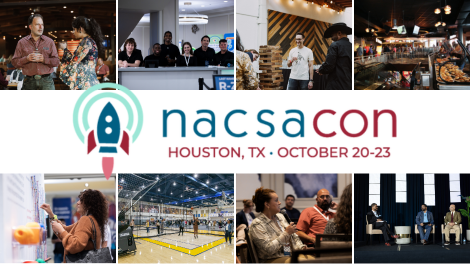MESA Charter High School is authorized by New York State Regents. This piece was written by Arthur Samuels, Executive Director, Pagee Cheung, Principal, Princess Francois, Assistant Principal of Math & Science, and Dwayne James, Social Worker & Director of Diversity, Equity, and Inclusion at Math, Engineering, and Science Academy (MESA) Charter High School in Brooklyn, NY.
When MESA Charter High School opened in 2013, we described it as a “love bubble on the third floor” of the forbidding public building we shared with two other district schools.
We are located in the Bushwick neighborhood of Brooklyn, a community comprised largely of immigrants from the Dominican Republic, Ecuador, Mexico, and Puerto Rico, and our student demographics reflect this.
With rigorous instruction, hard-working staff, and a relentlessly positive culture, the school thrived. Kids aced exams, graduated at rates unheard of in the district, and went to college.
Never mind that students self-segregated by race in the cafeteria.
Over time, the fissures became harder to ignore and more pernicious. Students described being bullied because of their skin color. There were vicious, anonymous attacks on social media. One student told us, “I get a great education here, but I hate coming to school,” which, as school leaders, cut deeply.
If students felt this way—and indeed, if some students had been feeling this way since day one—we couldn’t pretend that MESA was still a “love bubble.” We needed to respond.
In spring 2018—two years before the killing of George Floyd—our team began the painful but necessary process of unpacking the racial dynamics of our school. We first looked closely at how we, as staff and leadership, had permitted, and in some cases, unwittingly encouraged, racism to fester. We unearthed microaggressions that staff and students alike carried with them. We reexamined the language used, comments in class made carelessly or allowed to go unchecked.
It was, and continues to be, messy. We have attempted—slowly, imperfectly, and in a “two-steps-forward-one-step-back” way—to make MESA a place where we understand that everyone is on a journey, that we will all mess up along the way, and where it’s okay to make mistakes as long as you apologize, learn from it, and do better going forward.
While our staff continues on its journey, we knew we also needed to bring this work to our students. Implicit and explicit racism had played all-too-large a role in the lives of our kids, from the disproportionate impact of COVID-19 on families of color to the Black Lives Matter protests to the spike in anti-Asian rhetoric and attacks due to the pandemic.
Always keeping the perspective of our students in mind, we developed a three-part student series called “MESA University: School of Diversity.” We conducted a survey of all 500 students to gauge their understanding of topics such as gender, race, sexuality, and ethnicity. We learned that our students were very interested in these topics, but we had not yet provided them with the context and vocabulary to dive into them. For example, our students did not understand the difference between race and ethnicity (a distinction most adults struggle with), and had not really delved into conversations about gender or sexuality before.
In the first part of our series, we provided foundational knowledge of these strands—why is Latinx considered an ethnicity and not a race; proper gender pronouns to use; and the spectrum of sexual identities. Our students’ responses were overwhelmingly positive: 92 percent found these conversations to be authentic and 95 percent felt these were conversations we should continue to have at school. Seeing how this has struck a chord, we decided to continue.
Our next School of Diversity session will focus on intersectionality and privilege. This time, students are doing the heavy lifting, creating lesson plans around an area of interest to be shared schoolwide to elevate student voices. Students might create lessons to call attention to the rise in anti-Asian/Asian-American violence, for example, or the inequity in COVID vaccine administration in New York City.
For the last part of our series, we plan to look at social movements in the contemporary U.S. We’ll examine how the Civil Rights movement evolved into the Black Lives Matter Movement; we’ll trace the rise of #metoo and the history of the LGBTQ struggle for liberation and equality. Students will engage in social action projects to directly apply their knowledge gained through this series, drawing a direct correlation between their learning and the issues that impact them today.
With our school driven by the pandemic and racial reckoning of the past year, this is how we’ve kept school relevant. More importantly, this is how we’ve rebuilt our “love bubble,” not by ignoring the issues confronting our community, but by leaning in and addressing them head-on.
It continues to be difficult and messy. But it is also real, and it is what our kids need right now. We are proud that MESA has created an authentic space, even if it’s virtual right now, for our students to process and understand the moment we are in. We are confident it will endure beyond the pandemic, and ultimately, all of us at MESA will be the better for it.
NACSA is a trusted leader that centers authorizing and charter schooling on the assets, hopes, and needs of local communities. We support charter schools in developing innovative, community-centered learning experiences. We work with authorizers and other community stakeholders to create more and better opportunities for students.
Read more about how this commitment to collaboration #WithCommunities happens in practice and why it’s critical to advancing quality education systems. To read the full guide for educators, school leaders and advocates, visit WithCommunities.org.


